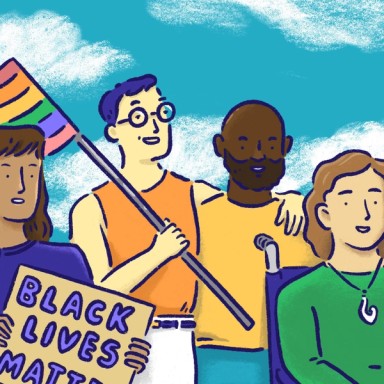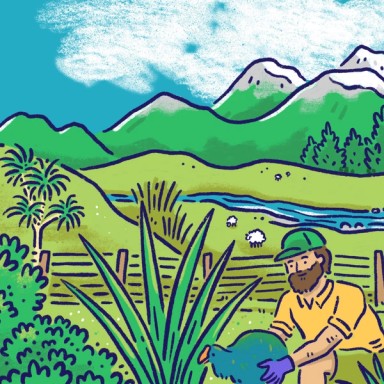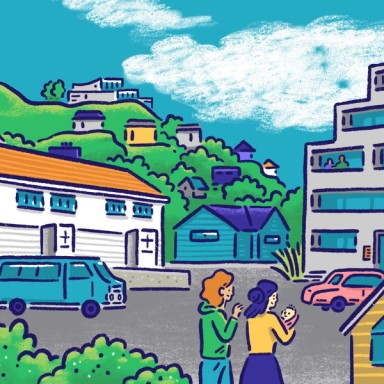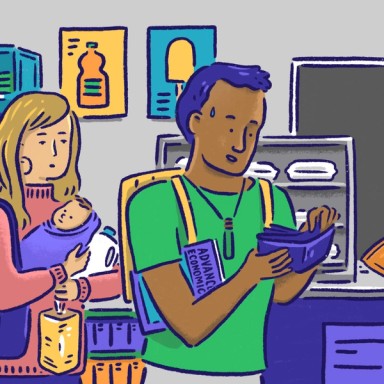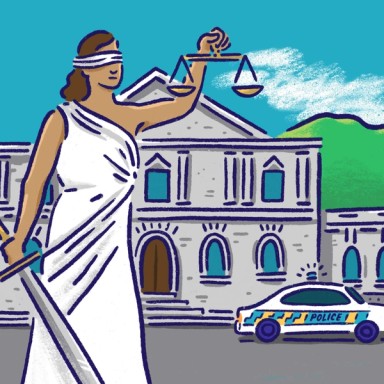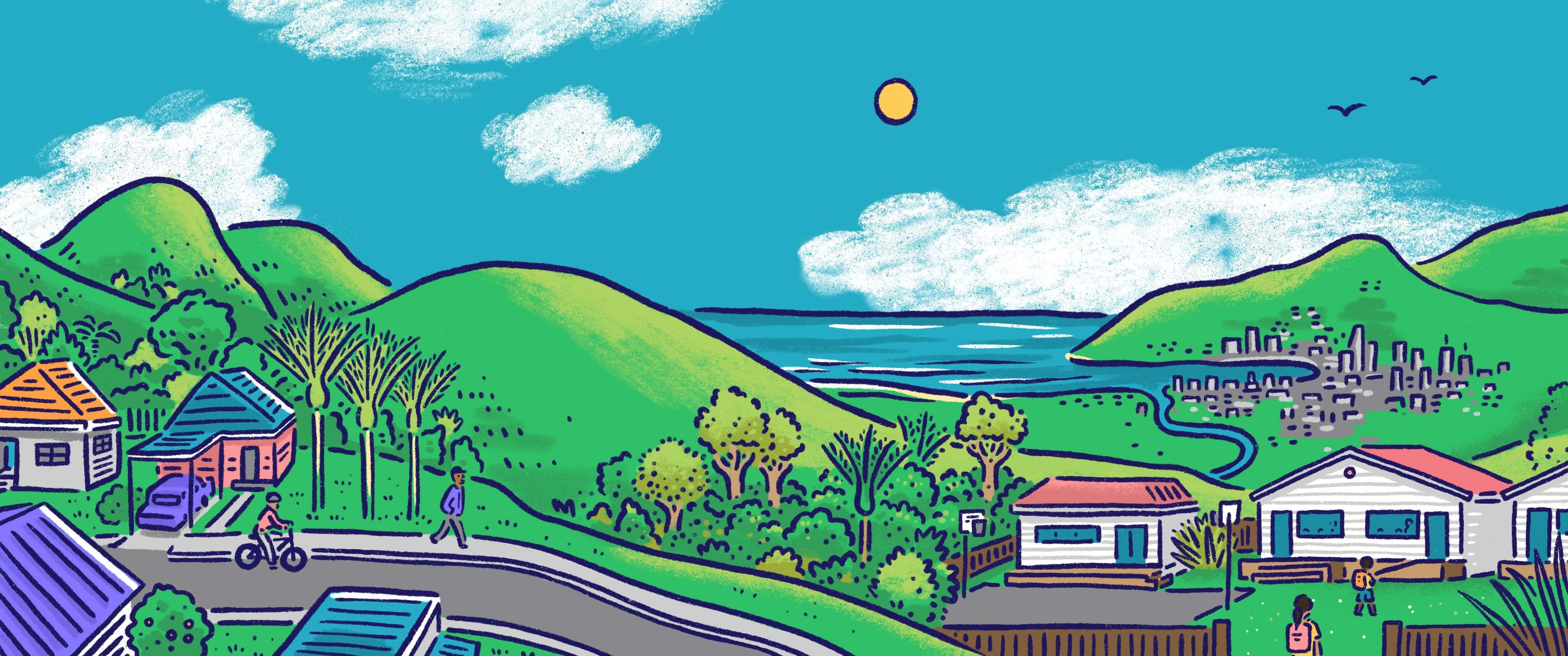
Party vote
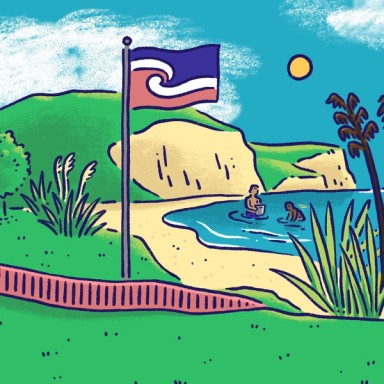
Te ao Māori
Te Tiriti o Waitangi is the foundational document for government in NZ and it remains central to current politics. Te reo Māori is more widely heard in public and taught in schools, tikanga Māori is being recognised by the legal system, and many historical Tiriti claims have been settled. But political struggle continues, as recent debates over co-governance show. For parties on the left, co-governance represents the next step in honouring the commitments made under te Tiriti, while some parties on the right say it is a threat to democracy.

Te ao Māori
Te Tiriti o Waitangi is the foundational document for government in NZ and it remains central to current politics. Te reo Māori is more widely heard in public and taught in schools, tikanga Māori is being recognised by the legal system, and many historical Tiriti claims have been settled. But political struggle continues, as recent debates over co-governance show. For parties on the left, co-governance represents the next step in honouring the commitments made under te Tiriti, while some parties on the right say it is a threat to democracy.
Remove regulatory barriers to allow Māori to build on their own land
Establish an inquiry into land dispossession due to breaches of Te Tiriti
Allow the Waitangi Tribunal to make non-binding recommendations regarding private land
Prevent Māori land from being forcibly taken under the Public Works Act
Abolish perpetual leases on Māori land
Ensure climate adaptation planning affirms tino rangatiratanga
Reform the Reserves Act to incorporate te Tiriti o Waitangi
Ensure resource management or local government system changes uphold tino rangatiratanga
Create a national food strategy
Support indigenous agricultural practices
Increase funding for indigenous forests
Uphold Treaty rights in relation to indigenous forests on public land
Implement Te Mana o te Wai for water management
Increase funding to protect natural wetlands
Work with unions, employers and Māori to transition to a low emissions economy
Prioritise the Māori economy in developing low-emissions jobs
Integrate mātauranga Māori concepts into decision making around natural resource use
Facilitate the return of wrongfully alienated land to tangata whenua
Increase funding for Māori to build on their own land
Establish an ocean commission to provide advice and set targets for marine systems
Create a fund for developing mātauranga and tikanga-based ocean management tools
Expand marine protected areas to cover 30 percent of NZ's oceans
Expand water supply exemption to include suppliers of fewer than 30 users
Remove Te Mana o te Wai from freshwater resource consenting
Develop credit system to encourage conservation on private land
Investigate a fast-track process for recognition of Māori landmarks and street names
Create a process for community-led rāhui
Support Māori to better access funds to install sustainable infrastructure on marae and papakainga
Introduce a papakainga planning standard
Invest in the growth of the Māori food and fibre export sector
Support indigenous tourism opportunities
Continue to support Jobs for Nature projects
Protect Māori commercial and customary fishing rights
Support iwi and hapū-led solutions to protect sites affected by sea level rises
Consider a fund for Māori climate change researchers and scientists
Continue supporting progressive home ownership funds for Māori
Return conservation land to whānau, hapū and iwi
Fund Māori farmers to transition from emissions-intensive farming
Fund Māori owned community energy projects
Acknowledge Māori rights over fresh water
Ensure that water rights are allocated fairly
Develop a national Māori strategy for renewable energy and clean technology
Phase out industrial coal burning by 2030
Establish climate change adaptation plans with whānau, hapū and iwi
Oppose research or commercialisation of indigenous plants without whānau, hapū and iwi consent
Oppose genetically engineered food
Increase intellectual property protections for indigenous seeds
Establish entity to enforce Māori rights and access to food
Create a contestable fund to support community food production and distribution
Set aside more urban and rural land for farming
Provide scholarships for young people to study food science, marine biology or agriculture
Fund regenerative and organic farming training
Support the creation of Māori supermarket chains
Support people selling home grown food at the community level
Build 2000 houses on Māori land over two years
Ban freehold land sales to foreign investors
Remove Te Mana o te Wai from freshwater resource consenting
Remove regulatory barriers to allow Māori to build on their own land
Establish an inquiry into land dispossession due to breaches of Te Tiriti
Allow the Waitangi Tribunal to make non-binding recommendations regarding private land
Prevent Māori land from being forcibly taken under the Public Works Act
Abolish perpetual leases on Māori land
Ensure climate adaptation planning affirms tino rangatiratanga
Reform the Reserves Act to incorporate te Tiriti o Waitangi
Ensure resource management or local government system changes uphold tino rangatiratanga
Create a national food strategy
Support indigenous agricultural practices
Increase funding for indigenous forests
Uphold Treaty rights in relation to indigenous forests on public land
Implement Te Mana o te Wai for water management
Increase funding to protect natural wetlands
Work with unions, employers and Māori to transition to a low emissions economy
Prioritise the Māori economy in developing low-emissions jobs
Integrate mātauranga Māori concepts into decision making around natural resource use
Facilitate the return of wrongfully alienated land to tangata whenua
Increase funding for Māori to build on their own land
Establish an ocean commission to provide advice and set targets for marine systems
Create a fund for developing mātauranga and tikanga-based ocean management tools
Expand marine protected areas to cover 30 percent of NZ's oceans
Expand water supply exemption to include suppliers of fewer than 30 users
Remove Te Mana o te Wai from freshwater resource consenting
Develop credit system to encourage conservation on private land
Investigate a fast-track process for recognition of Māori landmarks and street names
Create a process for community-led rāhui
Support Māori to better access funds to install sustainable infrastructure on marae and papakainga
Introduce a papakainga planning standard
Invest in the growth of the Māori food and fibre export sector
Support indigenous tourism opportunities
Continue to support Jobs for Nature projects
Protect Māori commercial and customary fishing rights
Support iwi and hapū-led solutions to protect sites affected by sea level rises
Consider a fund for Māori climate change researchers and scientists
Continue supporting progressive home ownership funds for Māori
Return conservation land to whānau, hapū and iwi
Fund Māori farmers to transition from emissions-intensive farming
Fund Māori owned community energy projects
Acknowledge Māori rights over fresh water
Ensure that water rights are allocated fairly
Develop a national Māori strategy for renewable energy and clean technology
Phase out industrial coal burning by 2030
Establish climate change adaptation plans with whānau, hapū and iwi
Oppose research or commercialisation of indigenous plants without whānau, hapū and iwi consent
Oppose genetically engineered food
Increase intellectual property protections for indigenous seeds
Establish entity to enforce Māori rights and access to food
Create a contestable fund to support community food production and distribution
Set aside more urban and rural land for farming
Provide scholarships for young people to study food science, marine biology or agriculture
Fund regenerative and organic farming training
Support the creation of Māori supermarket chains
Support people selling home grown food at the community level
Build 2000 houses on Māori land over two years
Ban freehold land sales to foreign investors
Remove Te Mana o te Wai from freshwater resource consenting
Policies
Compare the parties’ positions on the key issues this election
Candidates
See the electorate candidates running in your local area
Parties
Learn about each political party, its leaders and candidate list
Compare the candidates running in your local area
Each part of the country is represented in Parliament by an electorate MP. We've asked every candidate about their priorities for your community and why they deserve your vote.

